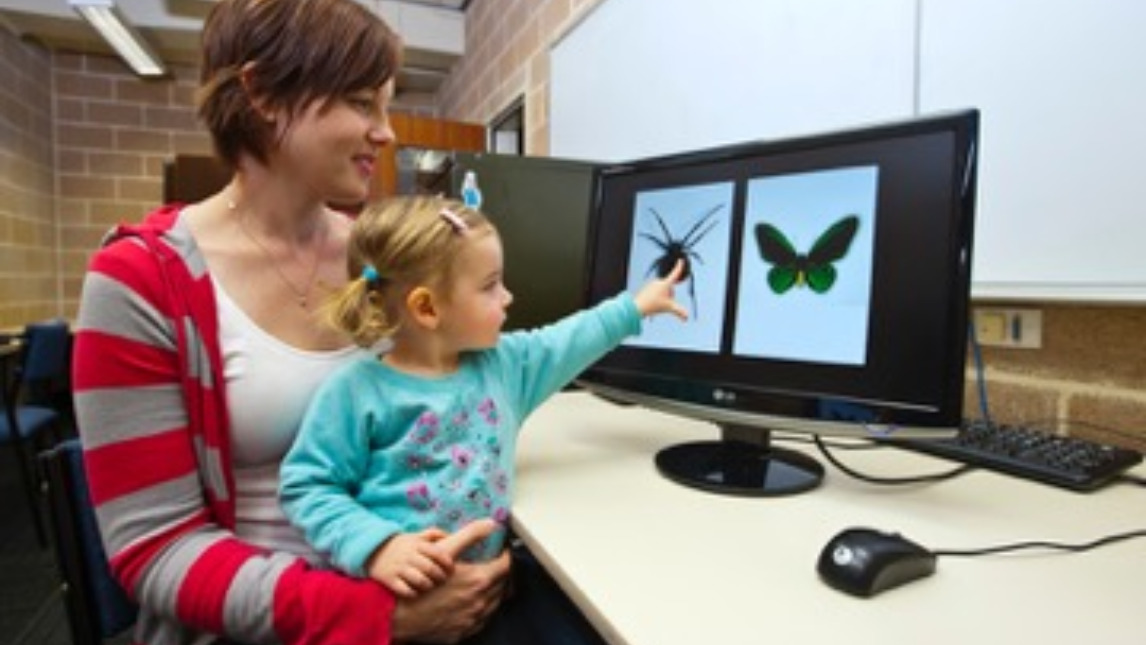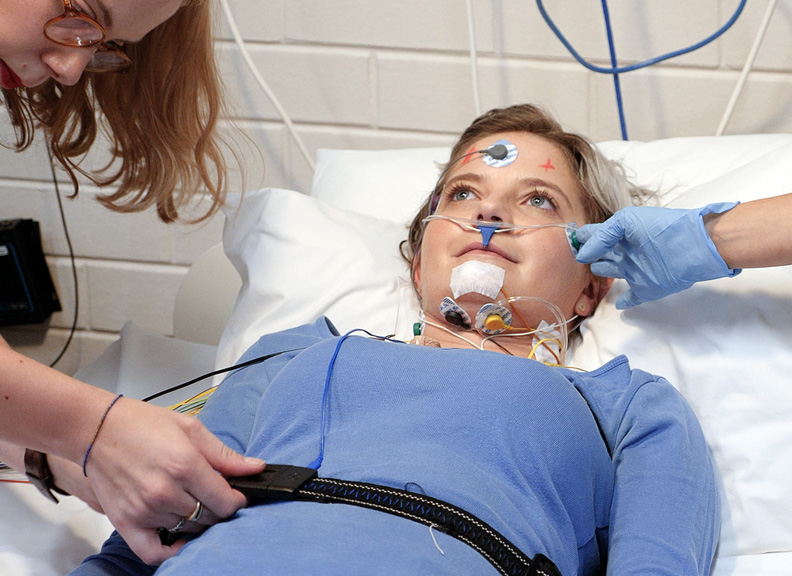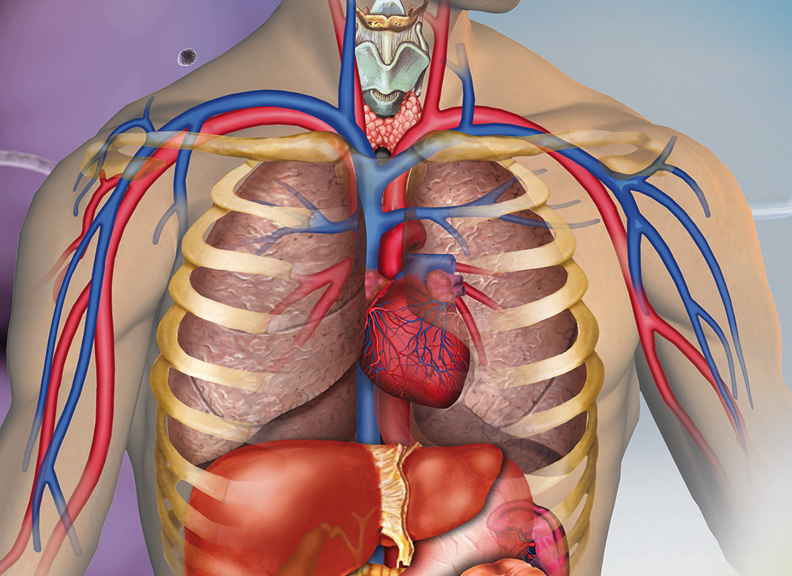Research
Clinical psychology and clinical neuropsychology
Improving quality of life for those impacted by brain and mental disorders
Quality of life can be impacted negatively and positively through factors that exist within the individual and society.
Our clinical psychology and clinical neuropsychology researchers are exploring theories and interventions to improve quality of life by understanding the causes and consequences of brain and mental disorders.
We focus on assessment, treatment and rehabilitation across the lifespan, societies and cultures. Our MPsych and PhD programs are a key way to engage with research in these areas and many of our graduates continue our research engagement with hospitals and health services across the nation.
Research laboratories
Clinical psychology and clinical neuropsychology researchers work across the following laboratories:
- Clinical Psychology
-

Clinical Psychology aims to understand and change abnormal behaviour, cognitions and emotions through the application of principles and techniques developed in the understanding of normal behaviour, cognition and emotions.
Our laboratory group aims to apply our understanding of normal psychology to extend our knowledge of the nature and modification of psychological problems. We apply patient monitoring to mental health settings with a view to improving outcomes.
Using electronic systems of data entry and management, it is possible to develop patient feedback systems that provide real-time information on progress. We are also working on developing ways to enhance treatments when progress is not optimal.
By tracking change from day to day and also examining the ways that increase temporal precision of measurement, we are seeking to investigate whether we can assist in the prediction and prevention of suicide and self-harm.
Contact us
- Centre for the Advancement of Research on Emotion (CARE)
-

Clinical theorists have attributed emotional disorders to cognitive idiosyncrasies, while cognitive theorists have developed models which suggest emotional states will be associated with pervasive information processing biases throughout the cognitive system.
Both clinical and cognitive models of emotional disorders predict the existence of processing biases favouring emotionally congruent information in attention, interpretation, and expectancies.
Researchers at the Elizabeth Rutherford Memorial Centre for the Advancement of Research on Emotion (CARE) use cognitive-experimental paradigms to test hypotheses arising from these models combining a focus on cognitive mechanisms with inter-disciplinary research to advance our understanding of emotion.
Key objectives and focus areas of the centre include:
- Bringing together world leaders in different research areas to establish new innovations in the understanding of emotion.
- Investigating patterns of selective information processing (or cognitive biases) that may underpin mental health problems and resilience, and examining the causal contribution of these biases to anxiety, worry, and adaptive functioning in the face of adversity.
- Evaluating recent developments in cognitive bias modification (CBM) techniques to contribute to the emotional well-being of the Australian community.
Contact us
- Director: Associate Professor Lies Notebaert
- Academic Staff: Dr Ben Grafton, Emeritus Professor Colin MacLeod
- Emotion Regulation Laboratory
-
Difficulties in emotion regulation (ER) are central to the development and maintenance of psychopathology. The current empirical evidence shows that ER difficulties are implicated not only in most psychological difficulties, including diagnosable disorders like anxiety, depression, bipolar disorder, etc., but also in relationship difficulties, alcohol abuse, gambling, aggression, and so on.
With this in mind, research is currently investing considerable efforts in understanding the mechanisms involved in ER as well as developing interventions that aim at improving ER strategies.

Our laboratory group aims to:
- Develop a valid and comprehensive assessment of emotion regulation, considering subjective, behavioural, and psychophysiological perspectives. Together with Dr David Preece, we have developed a series of self-report scales (The Perth series) which have been validated in community and student samples, and we are currently validating the scales in clinical samples.
- Develop an ER intervention that considers emotion-related phenomena, suspected to impact regulatory skills, i.e., emotional reactivity, alexithymia, and beliefs about emotions (see the Research Gate link to have full access to the scales and the relevant articles). We are currently running an ER clinic at the Robin Winkler Clinic of the University of Western Australia, as well as a local psychiatric hospital and a female prison in Perth, WA. This intervention incorporates current strategies proven to be helpful (e.g., psychoeducation, mindfulness, CBT components, etc.) in addition to specific techniques targeting maladaptive beliefs about emotions, improving alexithymic features, and strategies targeting emotional reactivity.
Contact us
- Director: Associate Professor Rodrigo Becerra
Contact - [email protected] - Co-researcher: Dr David Preece
- Collaborators: Professor Jo Badcock (UWA) and Carolyn Bright (Alma Street, Fremantle Hospital, Perth, WA)
- PhD students: Neil Berry and Jackie Davis
- Honours students: Jasmine Hancock and Courtney Stewart
- Healthy Ageing Laboratory
-
 Healthy Ageing Research Project (HARP)
Healthy Ageing Research Project (HARP)Project HARP is the umbrella name for a series of programmatic research projects focused on typical ageing. HARP is directed by Michael Weinborn and Romola Bucks. Projects have included evaluating predictors of independent functioning in healthy ageing individuals, and exploring the cognitive and neurological burden of sleep disturbance. All projects involve assessment of cognitive and emotional functioning, as well as functional outcomes.
To learn more about becoming a volunteer for this research project, please contact Michael Weinborn.
Contact us
- Parent and Child Laboratory
-
As children develop, they and their families face a range of challenges.

Mental health professionals have developed a range of interventions to address various social, emotional, and behavioural needs of children and their parents, and decades of research attest to their value in improving child and parent wellbeing. However, simply having programs available does not mean that parents and children will access and engage with them.
Only about a third of families who could benefit from these support programs initially engage in them, and of these, about half drop out. There is a range of reasons why parents do – and do not – seek and engage in help for their child, and knowing these will enable us to better plan accessible interventions in the future.
In the Parent and Child Lab, we are interested in researching questions that relate to these aspects of child development, parenting, and support interventions, such as:
Understanding the range of mental health and social challenges that children can experience, and how they come to develop these challenges.
Understanding how children get to therapy, and the barriers families face in doing so. * Parents’ perspectives on and experiences in how they support their children.
Stigma that parents and children with mental health problems and neurodevelopmental conditions face, and how they cope with this stigma.
Contact us
- Sensory Neuroscience Attention and Perception (SNAP) Laboratory
-
 Research interests within the SNAP Lab involves three distinct arms – visual perception, clinical research and sensory neuroscience. Current projects in each of these areas are described below.
Research interests within the SNAP Lab involves three distinct arms – visual perception, clinical research and sensory neuroscience. Current projects in each of these areas are described below. Enquiries about any SNAP Lab projects below should be directed to head of SNAP lab Associate Professor Jason Bell.
Perception research
Research in this area considers how the human visual system processes shapes and objects for recognition. Recognition is accomplished through the coordinated activation of distinct brain regions. Projects seek to discover what information is represented at each stage of processing.
Current research interests include:
- Studying the role of hemispheric specialisation in the processing of symmetry.
- The time course of visual perception. How fast and for how long do discrete visual mechanisms process content?
- The properties of the mechanisms processing visual number.
- Serial dependencies in visual perception. How and when is past information used in the processing of the present?
Clinical research
Dr. Jason Bell is interested in studying abnormalities of perception within particular groups. Together with associate professors Elizabeth Rieger (ANU) and Dr Susan Byrne (UWA), they are undertaking research to understand the relationship between biases in perception and or attention, and eating disorder symptomology, or obesity.
Current research interests include:
- Attentional biases to high and low calorie foods or to particular body shapes.
- Biases in the perceived healthiness of foods, or in the perceived size of female bodies.
- Attentional retraining procedures to reduce or null maladaptive processing strategies in relation to the above visual cues.
Together with Professor Carmela Pestell (UWA), they are conducting studies to better our understanding of the relationship between ADHD and altered time perception.
Current research interests include:
- studies retraining timing abilities
- studies examining the role of emotional regulation in ADHD symptomology and time perception
Sensory neuroscience
Understanding functional specialisation in the brain is a fundamental goal of neuroscience and psychology. The lab currently offers opportunities to study the effects of neurosynchronisation and of non-invasive cortical stimulation on perception and behaviour.
Current research projects and collaborations are utilising:
- Neuroscience techniques such as transcranial direct current stimulation, or tDCS to investigate the correlates of attention and perception.
- Neurosynchronisation techniques to understand the role of rhythmic brain activity in various aspects of attention, perception and action, with a focus on theta and alpha bands.
- Translational Research in Mental Health Laboratory
-
 Translational research refers to activities which ensure that new research findings and interventions actually reach the people for whom they are intended. It also means working with clinicians and health services to facilitate the communication and implementation of research findings into everyday clinical practice. Through collaborative engagement efforts, we can ensure that people with mental health issues are provided with the best support available.
Translational research refers to activities which ensure that new research findings and interventions actually reach the people for whom they are intended. It also means working with clinicians and health services to facilitate the communication and implementation of research findings into everyday clinical practice. Through collaborative engagement efforts, we can ensure that people with mental health issues are provided with the best support available.Currently, the main focus of our research is as follows:
- sleep in the context of severe mental illness
- hallucinations, voices, visions and related experiences
- youth mental health
Sleep in the context of severe mental illness
Lab director Professor Flavie Waters manages the ‘Sleep Well Feel Well’ mental health sleep clinic in North Metro Health Service Mental Health, where sleep interventions and assessment methodologies are trialled with people with schizophrenia, bipolar disorder, post-traumatic stress disorder, and personality disorder. A collaboration with Dr Melissa Ree (UWA, Marian Center) and PhD student Ms Chiu has produced an evidence-based CBT-Insomnia for Psychosis manual.
Professor Murray Maybery (UWA) and Professor Andrew Whitehouse (UWA, Telethon Institute) are investigating sleep in autism and are also trialling new methods for supporting people with mental illness and sleep apnoea who cannot use continuous positive airway pressure devices.
Hallucinations, voices, visions and related experiences
The International Consortium on Hallucination Research is a collaborative platform that aims to energise research on this topic, support collaborative efforts and develop new treatment for distressing experiences. Professor Murray Maybery is looking to better understand visual hallucinations in the general community and is also working together with Professor Peter McEvoy (Curtin University) to explore app-based interventions for distressing voices and other perceptual experiences in young people with mental health issues aged 16-24.
Contact us
-
Lab director: Professor Flavie Waters
- Emotional Wellbeing Laboratory
-

The Emotional Wellbeing Lab seeks to understand how emotional processes contribute to wellbeing and mental health in adults. Symptoms of emotional disorders, such as depression and anxiety, are very common in the general population. Although there are good preventative and treatment interventions available, they are not effective for everyone, and we do not have a full picture of how risk and protective factors work together in different ways for different people. In particular, relatively little is known about people’s emotional wellbeing in daily life, naturalistic settings.
We take a transdiagnostic, dimensional approach to mental health, focusing on broad factors--such as emotion regulation, decentring, and mindfulness-- that cut across many disorders. Much of our work employs experience sampling methods, which use smartphones to measure people’s experiences repeatedly in real time. In addition, we incorporate psychophysiology (e.g., heart rate variability, electrodermal activity, actigraphy) in the lab and in daily life, to provide objective measures of emotional functioning that complement self-report. We also use advanced statistical techniques (e.g., multilevel structural equation modelling, latent profile analysis, etc.) to draw more precise conclusions and improve assessment-- including creating new measures when needed. Overall, we hope that this work will inform and refine treatment targets for emotional disorders, enhancing wellbeing in people’s daily lives.
Contact Us
- Sleep Psychology Laboratory
-

Sleep is an absolutely vital human function, yet sleep disturbance and sleep disorders are highly prevalent. Among other consequences, sleep disturbance increases the risk for many other psychological disorders (e.g., depression and anxiety). Broadly, our research group aims to i) identify the causes and consequences of inadequate sleep, ii) develop and evaluate novel treatments for sleep problems across the lifespan, iii) evaluate the effectiveness of sleep treatments in various populations and iv) elucidate mechanisms linking sleep with mental health disorders and symptoms.
Recent interests include:
- Identifying risk/protective factors for adolescent sleep
- Understanding the sequalae of inadequate sleep in young people
- Developing and evaluating novel sleep interventions (e.g., a brief sleep intervention for university students)
- Investigating the effectiveness of CBT for insomnia and bright light therapy in various populations including, psychiatric patients, children and young people, and older adults
- Understanding the positive impact of sleep treatments on mental health outcomes, and cognitive function and brain health
- Identifying processes that link improvement with sleep with improvement in mental health disorders and symptoms
Contact Us
Collaboration
Telethon Kids Institute
Staff at UWA Psychological Science collaborate extensively with the Telethon Kids Institute in research on:
- biological and neuropsychological factors implicated in the development of disorders such as autism, ADHD, FASD and language disorders;
- early identification and intervention for these disorders;
- psychological and social outcomes for children with developmental disorders and their families, and;
- the experiences of diverse youth and how this impacts on their development.













